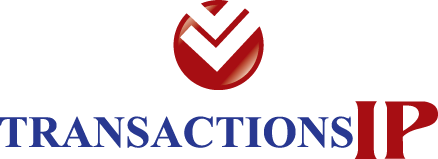Transaction Services
Patent Buying
How do I Buy a Patent?
Purchasing a patent can be a significant investment. Owners could be individuals, companies, or research institutions. It's essential to conduct thorough due diligence and consult with Intellectual Property professionals to navigate the complexities of the patent system and ensure a favorable outcome. Process includes: Identify the Patent You Want to Buy; Locate and Contact the Patent Owner; Understand Valuation; Explain why you want to buy the patent; Negotiate Terms; and Close Patent Purchase Agreement and Patent Transfer.
How To Buy A Patent
 Have you ever wanted to know how to buy a patent? The process is a difficult one and TransactionsIP is here to help you research different patents and acquire the one that is perfect for you. We can work with you the buyer to figure out what is the best strategy to fulfill your needs. Need patents for protection of products? Need them for collateral in a cross-license negotiation? Need them to enforce for monetary gain? TransactionsIP can help. The types of buyers we work with and our buying process is more fully described below. Let us help you find the diamond patents to buy.
Have you ever wanted to know how to buy a patent? The process is a difficult one and TransactionsIP is here to help you research different patents and acquire the one that is perfect for you. We can work with you the buyer to figure out what is the best strategy to fulfill your needs. Need patents for protection of products? Need them for collateral in a cross-license negotiation? Need them to enforce for monetary gain? TransactionsIP can help. The types of buyers we work with and our buying process is more fully described below. Let us help you find the diamond patents to buy.
What We Do For You
TransactionsIP specializes in buying Select and Targeted Patents which are often not on the Market. We identify and contact the selected patent owners to enable the availability of the targeted patents. The ultimate goal is ensuring the appropriate patent is acquired at the cheapest price for the client. Let us help guide you through the process of patent buying.
Buy Side Representation
TransactionsIP focuses on buying patents or patent portfolios for:
- Strategic and Enterprise Buyers
- Anonymous Buyers
- Financial Buyers (Equity and Capital Groups)
- Patent Aggregators
Strategic and Enterprise buyers are usually operating companies wanting to buy patents for defensive reasons (to protect a product or future product) or for offensive reasons (to use in a counter lawsuit against someone already suing them). Patent acquisitions can be large or small portfolios depending on the needs of the buyer.
At times the buyers wish to stay anonymous. If a seller knows the buyer is a large corporation with lots of cash they may inflate the price immediately. This puts the buyer at a disadvantage in pricing. Using TransactionsIP can limit or even eliminate the inflated pricing by the seller.
Financial Buyers buy for a variety of reasons tied to creating a return on their investment buys. TransactionsIP has established a network of contacts with these types of buyers.
Patent Aggregators are just that, they aggregate patents to create a portfolio they can enforce through litigation (offensive) or they buy to keep patents from being enforced (defensive). They often want to buy anonymously and use firms like TransactionsIP for this need.
In all buying situations TransactionsIP has completed deals with most of the acquisition entities above. TransactionsIP can anticipate and mitigate problems and speed bumps during the negotiations, and help to complete win-win deals for our clients.
Our Patent Buying Process
- Define Field of Search based on Clients Needs
- Patent keywords (versus USPTO Database) or Specific Patent #’s
- Use Software Tools to Create List of Potential Patent Acquisitions (100-250 patents)
- Refine List with Client using an Initial Evaluation Screen (50-100 patents)
- Confirms patents in the specific field of interest
- Contact Owners to Determine if Patents on List are for Sale (50-100 patents)
- If not, no further work on those patents
- For Available List, Do an In Depth Analysis to Identify and Prioritize Valuable Patents (25-50 patents)
- Technical Experts provide a Prioritized List of Patents
- Recommendation of targeted patents based on client budgetary goals
- Pursue acquisition of selected highest rated patents
- Negotiate Purchase (10 patents)
- Close Sale of Patent (s)
- The patent buying process is complete!
View more information about the process HERE.
Fees
Projects are often based on a combination fee structure that includes some hourly fees and a success fee percentage. The hourly fees are dependent on how much research and analysis the client provides and how much research and analysis is required by TransactionsIP. Total hours and target price for the patents are matched to the client budget before campaign launch.
